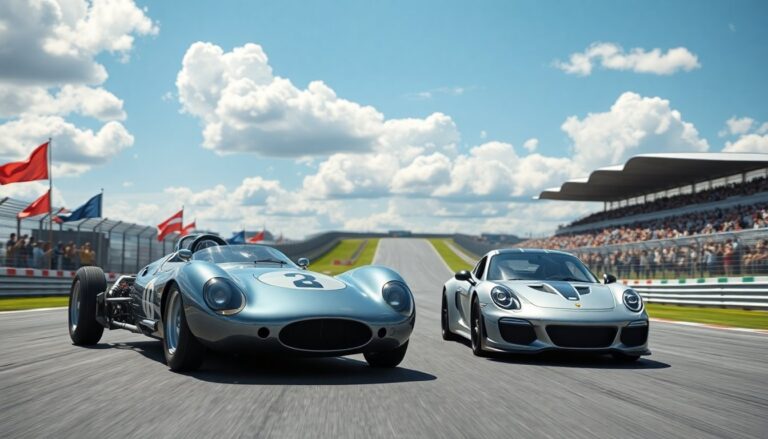Argomenti trattati
The world of motor sport has undergone a significant transformation, evolving from a pastime for enthusiasts into a global spectacle that captivates millions. This evolution began in the early days of motor racing, driven by a spirit of adventure and competition. As technology advanced and audiences grew, motor sport developed into a highly organized and professional industry. This article explores the key milestones that shaped the history of motor sport and its impact on culture and society.
Early beginnings of motor sport
The origins of motor sport can be traced back to the late 19th century, when the first automobile races were held in France. These events were informal and drew local participants eager for speed. The Paris-Rouen race in 1894 is often recognized as the first official motor race, emphasizing endurance over speed. This race marked the dawn of a new era, celebrating the automobile as not just a mode of transport but a thrilling machine capable of remarkable feats.
The dawn of organized racing
As automobiles gained popularity, the demand for structured competitions increased. In 1906, the Grand Prix de l’Automobile Club de France paved the way for organized racing. It introduced a formal format that would lay the groundwork for modern racing events, featuring a designated course, strict regulations, and a focus on speed and skill. This attracted a new breed of competitors and spectators. The success of this event inspired similar races throughout Europe, solidifying motor sport’s role in the cultural landscape.
The rise of professional motor sport
The 1920s and 1930s marked a new era for motor sport, highlighted by the establishment of the International Automobile Federation (FIA) in 1904 and the inaugural Formula One championship in 1950. These developments signified the shift from amateur racing to a professional sport, complete with sponsorships and commercial interests. The introduction of safety measures and technological advancements, including aerodynamics and lightweight materials, further enhanced the appeal of racing.
Global expansion and technological innovation
As motor sport gained traction, it also witnessed significant technological innovations. The post-war period brought forth powerful engines and improved tire technology, revolutionizing racing dynamics. The Formula One circuit expanded globally, hosting races in various locations and attracting a broader audience. This global reach not only increased participation but also sparked interest in local motorsport events, leading to the establishment of national championships and grassroots racing.
The cultural impact of motor sport
Motor sport has transcended competition, evolving into a cultural phenomenon that influences fashion, music, and lifestyle. Iconic races like the Le Mans 24 Hours and the Monaco Grand Prix have become synonymous with luxury and sophistication, drawing celebrities and affluent enthusiasts. The rise of motorsport films, documentaries, and video games has further entrenched motor sport in popular culture, creating a symbiotic relationship between the sport and its audience.
Moreover, motor sport has played a crucial role in breaking down societal barriers. The emergence of female drivers, such as Danica Patrick and Susie Wolff, has challenged traditional gender roles, inspiring a new generation of fans and participants. Initiatives promoting diversity and inclusion within the sport have also gained momentum, underscoring the importance of representation in motorsport.
The future of motor sport
Looking ahead, the future of motor sport is likely to be shaped by sustainability and technological advancements. The push for greener alternatives has led to the emergence of electric racing series like Formula E, which showcases cutting-edge technology and addresses environmental concerns. As motor sport continues to evolve, it will be essential for stakeholders to balance tradition with innovation, ensuring that the sport remains relevant in an ever-changing world.
The journey of motor sport from its humble beginnings to a global spectacle reflects not only technological evolution but also the changing dynamics of society. As motor sport continues to captivate audiences, it remains a testament to human ingenuity and the enduring spirit of competition.

